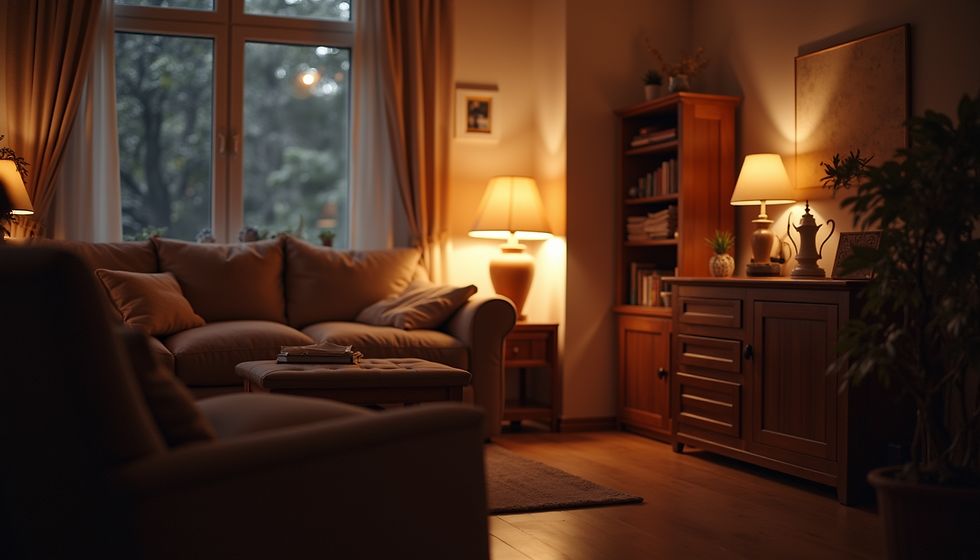Social Engagement for Mental Health in an Age of Loneliness
- Laura

- Oct 20, 2025
- 4 min read
In a world where technology keeps us constantly connected, we are facing a loneliness epidemic. Despite having seemingly endless ways to communicate, many of us feel disconnected from one another. This profound sense of isolation can significantly affect our mental health, making social engagement more critical than ever.
So how have we reached this position?
The Loneliness Epidemic
Loneliness goes beyond being alone; it is an emotional state that leads to sadness and anxiety. Recent studies indicate that around 61% of adults report feeling lonely, with 35% expressing that their loneliness affects their overall well-being. This worrying trend exists even as technology promises to bring us closer together.
Social media, while providing quick access to friends and family, often lacks the warmth of in-person conversations. For instance, a survey found that 70% of people feel the quality of their relationships has declined due to reliance on digital communication. This disconnect leaves many surrounded by virtual friendships yet feeling deeply alone.
The COVID-19 pandemic intensified these feelings of isolation. With lockdowns forcing physical distancing, many found their usual social circles disrupted. A study by the American Psychological Association revealed that 60% of young adults experienced increased feelings of isolation during the pandemic, highlighting the urgent need for connection.
The Impact of Loneliness on Mental Health
The link between loneliness and mental health issues is clear. Studies show that chronic loneliness can lead to depression, anxiety, and even cognitive decline. Reports indicate that lonely individuals are twice as likely to suffer from depression compared to those with strong social ties. Just as our bodies need proper nutrition, our brains need social interaction to function optimally.
Moreover, loneliness can lead to unhealthy coping strategies. For example, individuals may turn to overeating or substance abuse to fill the void left by social disconnection. This creates a damaging cycle where loneliness leads to unhealthy habits, which in turn exacerbates feelings of isolation.
Stigma can also hinder help-seeking behaviour. Many people feel embarrassed about their loneliness and think they should manage it alone. This reluctance to ask for support further deepens feelings of isolation, making it critical to address this cycle.
The Role of Social Engagement in Mental Health
Social engagement is vital for good mental health. Meaningful interactions provide emotional support, help reduce loneliness, and foster a sense of belonging. Research shows that people with strong social connections have lower levels of anxiety and increased resilience. Engaging socially also stimulates cognitive function, benefiting our overall mental well-being.
Building social connections can occur in many ways. Joining a local club, attending community events, or simply reaching out to friends can all enhance your social life.
Engaging in shared activities is one of the best ways to foster connections. A study from Health Affairs highlights that volunteering can increase life satisfaction by 27% and reduce feelings of depression while creating lasting friendships and support networks.

Practical Steps to Enhance Social Engagement
Recognising the need for social engagement is just the first step. Here are practical methods to enhance your social connections:
Reach Out: Take the first step to contact friends or family members. A phone call or text can rekindle or build upon current relationships.
Join Local Groups: Find clubs or organisations in your area that match your interests. Whether it’s a book club, sports team, or art class, joining a group can foster a sense of community and belonging.
Volunteer: Contributing to your community connects you with others and provides a fulfilling experience. Volunteering is proven to increase happiness and connection, significantly improving your mental well-being.
Attend Events: Look for local events, like festivals, workshops, or community gatherings. These opportunities allow you to meet new people and engage with your community.
Practice Active Listening: In conversations, truly engage by being present. Active listening makes the person you’re speaking with feel valued, strengthening your connection.
Limit Screen Time: While technology offers communication, it can contribute to feelings of isolation. Set limits on your screen time and prioritise face-to-face interactions.
Seek Professional Help: If loneliness becomes overwhelming, speaking with a mental health professional can provide the support and tools needed to cope better.

Taking Action (despite it feeling uncomfortable!)
As feelings of loneliness become increasingly common, the importance of social engagement is clearer than ever. Building and maintaining meaningful connections is crucial for our mental health and overall well-being. By actively pursuing social interactions and seeking connection opportunities, we can combat loneliness and create a stronger sense of belonging.
In our journey through modern life, it is essential to remember that we are not alone. There are communities, that provide space for individuals to connect, share experiences, and cultivate meaningful relationships, we just need to be brave enough to reach out.
If you're interested in enhancing your social engagement and improving your mental health, I am running the Grounded Women's Network. Together, we can build a more connected community, with both online group coaching sessions and monthly in-person meet ups in the Redditch, Birmingham & surrounding areas.
Together our aim is to achieve our own personal goals, learn to regulate our nervous system, build confidence and essentially help each other thrive in an increasingly disconnected world.
By taking small steps toward social engagement, we can change our mental well-being and positively influence those around us. Let’s commit to breaking the cycle of loneliness and nurturing a brighter, more connected future.




Comments